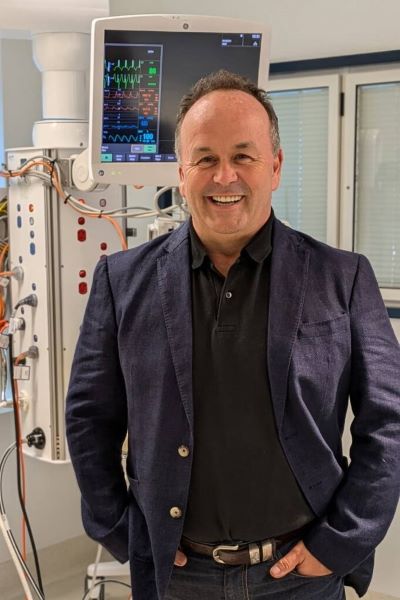Living Heart Project offers new hope for patients waiting for donor heart

Dr John Fraser, founder and director, of the Critical Care Research Group Living Heart project, which is keeping a donor heart outside the body ‘alive’ for longer than ever before, increasing the number of heart transplants each year by up to 20 per cent, helping recipients like Alex.
The Critical Care Research Group (CCRG) is reshaping the future of heart transplantation by investigating novel ways to increase the number of hearts available for transplant.

Dr John Fraser, founder and director, of the Critical Care Research Group Living Heart project, which is keeping a donor heart outside the body ‘alive’ for longer than ever before, increasing the number of heart transplants each year by up to 20 per cent, helping recipients like Alex.
Known as the Living Heart Project, the initiative builds on the team’s successful preclinical trials of hypothermic oxygenated perfusion (HOPE) that can safely keep donor hearts ‘alive’ outside the body for longer than ever before.
At the heart of this innovation is the HOPE system, which uses a specialised oxygen-and nutrient-rich solution—affectionally dubbed ‘medical Gatorade’—to keep hearts stable outside the body. This method allows the organ to rest and rejuvenate before surgery, significantly extending the safe preservation window well beyond traditional ice storage.
Currently, approximately 75 per cent of donor hearts are discarded, due in part to the transport limitations. It is hoped this research will drastically improve outcomes for patients and honour the extraordinary generosity of organ donors and their families.
CCRG Founder and Director Professor John Fraser AO said the project and the use of HOPE had revolutionised the practice of heart transplantation, increasing the number of heart transplants done each year by up to 20 per cent.
“Because we can now keep hearts outside the body for longer than ever before, hearts can travel further, crossing vast distances that would never have been possible before,” Prof Fraser said.
“We have demonstrated that we can keep donor hearts outside the body for up to 12 hours and are now exploring even longer times.”
Together, with major transplant centres across Australia and New Zealand, experts from CCRG and Alfred Health led trials to shepherd the technology into clinical use, changing global transplant protocols, as well as exploring other avenues for organ donation, including donation after circulator death, a program of research led by CCRG Postdoctoral Research Fellow, Dr Molly McInerney.
The importance of this research is underscored by the global rise of heart failure, an irreversible and fatal condition, and a leading cause of death worldwide. While transplant is the only treatment for end-stage heart failure, there has been little change to the way heart transplants are conducted for over five decades.
In recognition of their game-changing work, CCRG was awarded the 2024 Game Changer Award for Research Excellence by The Australian Cardiovascular Alliance earlier this year. The awards, now in their fourth year, were established to acknowledge and celebrate leadership, collaboration and innovation within the sector. They also showcase the breadth and diversity across the cardiovascular and stroke research spectrum.
The Critical Care Research Group thanks The Common Good, an initiative of The Prince Charles Hospital Foundation, for its continued support for the Living Heart Project.
